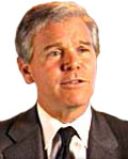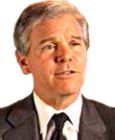ADHD
The Coronation of Pharmarchy
Money, politics and power masquerading as science.
Posted April 12, 2008
The last consensus conference on ADHD in 1998 was meant to trumpet the initial findings of the government's MTA study which at that time was indicating that Ritalin (meaning all the prescription stimulants) worked. This was no great news to most of us in the field but enough controversy remained about Ritalin that the leaders in child psychiatry research (funded primarily by drug companies - though not this particular study) wanted once and for all to end questions about Ritalin.
But in fact the conference was a disappointment to the establishment as the neutral (non experts in the field of chlid psychiatry - doctors, lawyers, parents, etc.) found the evidence that ADHD was simply a brain based disorder not convincing and in not being clear about etiology, did not want to advocate one treatment over another. Nor could the panel recommend preventative strategies. The conference acknowledged the problems of behavior and performance in children and recognized the barriers to getting effective interventions.
Ten years later the triumph of our "pharmacrocy" is nearly complete. The venerable radical avatar of anti-psychiatry, Thomas Szasz, coined this term in a 2001 book. Since he gets credit for that neologism I propose my word "pharmarchy" to mean the absolute power a monarch wields over his/her subjects alluding to the power the drug industry in league with medical researchers now influences our thinking about children and mental health in our country.
If the NIMH bites and convenes another conference I predict the public will be inundated with industry financed experts (each one of them are good men and women who sincerely believe in their research but data and common sense show that they are influenced by their financial sponsors) who will declare the solely biological basis of ADHD trotting out genetic and brain scan data as evidence. The "nature" aspects of this "disorder" in this setting will overwhelm the "nurture" (read family, school, social, economic, and political aspects) with all the usual implications: it's no one's fault (very appealing but then also denies responsibility) and that medication makes the most sense in treating a biological disorder.
I am so tired and weary of this reductionistic, simplistic ultimately unethical view of children's behavior. I've been at this for nearly 15 years (30 years in practice) and recognize society's own responsibility in devouring this propaganda. Anyone who has read my stuff over the years know that I believe there is a biological/genetic/chemical component to all behavior but that's only the beginning of understanding and treating ADHD.
Phenylketonuria deficiency of PKU deficiency is a genetic disorder that all babies are screened for with a heel-stick blood test shortly after birth. Why? Because if you eliminate phenylalanine from a child's diet right at birth, the child grows up to be entirely normal. Untreated, severe mental retardation ensues. Here is a clearly genetic disorder but is "treatable" with a environmental intervention.
I'm not making the case for changing children's diets for ADHD (the evidence for the effectiveness of such interventions is rather weak unfortunately). But I want to nail this reductionistic approach for everyone -- not that it matters. My blog's point will overwhelmed daily by countless drug company ads suggesting to parents "It your child's brain, stupid!"
So we will have this conference if the AACAP has it's way. The government generally caves to industry. I suspect I will even be invited as one of the token heretics. The last time William Carey was the stand-in. He began his presentation with a slide of St. Stephen at the Cross (apparently a saint who after crucifixion also had arrows shot through him). My favorite slide these days is that of Sisyphus. You know that guy in the loin clothe condemned by the gods (by the way what he do wrong to deserve such a fate?) to push the boulder uphill only to have it roll down and start over again. These days I find the slope of that hill becoming steeper and steeper. Oh my.


